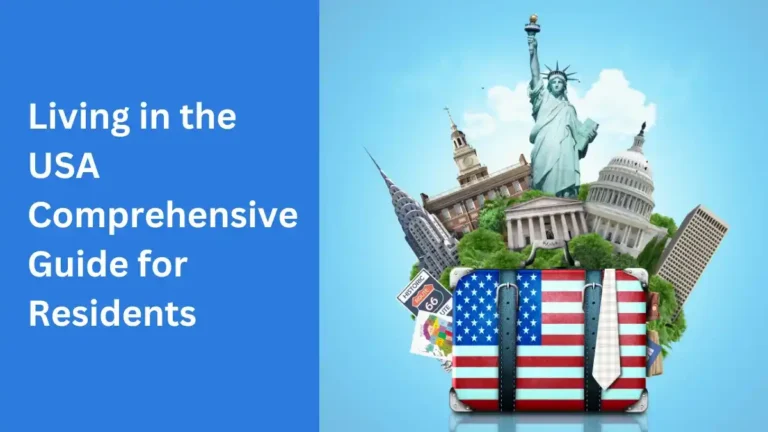The Diversity of American Music Genres
Introduction
The American music scene is a vibrant tapestry woven with diverse genres, rich history, and celebrated festivals. From the rhythmic beats of jazz to the electrifying energy of rock, the United States has been a significant contributor to global music culture. This guide explores various musical genres, notable festivals, and the unique characteristics that define America’s soundscape.
The Diversity of American Music Genres
1. Country Music
Country music originated in the rural Southern United States in the early 20th century. It combines elements of folk, blues, and Western music.
Key Characteristics
- Instruments: Guitars, banjos, fiddles, and harmonicas.
- Themes: Love, heartbreak, rural life, and storytelling.
Notable Artists
- Johnny Cash
- Dolly Parton
- Garth Brooks
2. Rock Music
Emerging in the 1950s, rock music is characterized by its strong beat, simple melodies, and electric guitars. It has evolved into various sub-genres over the decades.
Key Characteristics
- Instruments: Electric guitars, bass, drums, and keyboards.
- Sub-genres: Classic rock, punk rock, alternative rock, and heavy metal.
Notable Artists
- The Rolling Stones
- Nirvana
- Beyoncé
3. Hip Hop
Hip hop originated in the 1970s in the Bronx, New York City. It encompasses not only music but also art forms like graffiti and breakdancing.
Key Characteristics
- Elements: Rapping (MCing), DJing, graffiti art, and street fashion.
- Themes: Urban life, social issues, and personal experiences.
Notable Artists
- Tupac Shakur
- Jay-Z
- Kendrick Lamar
4. Jazz
Jazz is a uniquely American genre that emerged in the early 20th century, blending African American musical traditions with European influences.
Key Characteristics
- Instruments: Saxophones, trumpets, pianos, and double basses.
- Styles: Dixieland, bebop, cool jazz, and smooth jazz.
Notable Artists
- Louis Armstrong
- Duke Ellington
- Miles Davis
5. Blues
Blues music has its roots in African American history, evolving from spirituals and work songs in the Deep South.
Key Characteristics
- Instruments: Guitars, harmonicas, and pianos.
- Themes: Heartache, struggle, and life’s challenges.
Notable Artists
- B.B. King
- Muddy Waters
- Etta James
6. Electronic Dance Music (EDM)
Emerging in the 1980s, EDM has grown into a massive genre characterized by upbeat tempos and synthesized sounds.
Key Characteristics
- Elements: Synthesizers, drum machines, and sequencers.
- Sub-genres: House, techno, dubstep, and trance.
Notable Artists
- Skrillex
- Calvin Harris
- David Guetta
7. Reggae
Originating from Jamaica, reggae has become a global phenomenon, known for its rhythmic style and socially conscious lyrics.
Key Characteristics
- Instruments: Electric guitars, bass guitars, and drums.
- Themes: Love, social justice, and resistance.
Notable Artists
- Bob Marley
- Peter Tosh
- Jimmy Cliff
Major Music Festivals in the USA
Music festivals offer fans a chance to experience live performances from their favorite artists while enjoying the communal spirit of music. Here are some of the most notable festivals across various genres.
1. Coachella Valley Music and Arts Festival
Location: Indio, California
Established: 1999
Coachella is one of the most iconic music festivals, featuring a diverse lineup that spans multiple genres, including rock, pop, hip hop, and electronic music.
Highlights
- Art Installations: Coachella is renowned for its impressive art installations, creating a unique festival atmosphere.
- Fashion: The festival is also a fashion showcase, attracting trendsetters from around the world.
2. Bonnaroo Music and Arts Festival
Location: Manchester, Tennessee
Established: 2002
Bonnaroo is known for its eclectic lineup, offering genres ranging from rock and indie to hip hop and jazz.
Highlights
- Sustainability: The festival promotes sustainability with initiatives for waste reduction and eco-friendly practices.
- Activities: Beyond music, Bonnaroo features comedy, art, and workshops.
3. Lollapalooza
Location: Chicago, Illinois
Established: 1991
Lollapalooza began as a touring festival but has since settled in Chicago, featuring a mix of genres and international acts.
Highlights
- Diverse Lineup: Lollapalooza hosts both well-known and emerging artists.
- Cultural Impact: The festival has expanded to include events in other countries, enhancing its global reach.
4. New Orleans Jazz & Heritage Festival
Location: New Orleans, Louisiana
Established: 1970
This festival celebrates the rich musical heritage of New Orleans, featuring jazz, blues, R&B, and more.
Highlights
- Culinary Delights: Attendees can enjoy a variety of local cuisine, enhancing the cultural experience.
- Local Artists: The festival emphasizes local talent alongside national acts.
5. South by Southwest (SXSW)
Location: Austin, Texas
Established: 1987
SXSW is a convergence of music, film, and technology, making it one of the most dynamic festivals in the USA.
Highlights
- Networking: SXSW offers opportunities for artists and industry professionals to connect.
- Variety of Events: In addition to music, attendees can enjoy films, panels, and exhibitions.
6. Electric Daisy Carnival (EDC)
Location: Las Vegas, Nevada
Established: 1997
EDC is one of the largest electronic music festivals in the world, attracting fans of EDM.
Highlights
- Spectacular Production: The festival is known for its elaborate stage designs, light shows, and carnival rides.
- Global Appeal: EDC attracts attendees from around the globe, celebrating the EDM culture.
7. The Newport Folk Festival
Location: Newport, Rhode Island
Established: 1959
The Newport Folk Festival has played a significant role in the folk music revival and continues to celebrate folk music traditions.
Highlights
- Intimate Atmosphere: The festival maintains a laid-back, community-focused vibe.
- Historic Performances: Many legendary performances have taken place at Newport, making it a cornerstone of American music history.
The Impact of Music on American Culture
1. Music as a Reflection of Society
Music often reflects the social, political, and economic conditions of its time. Genres like blues and hip hop have roots in the struggles and experiences of marginalized communities, serving as powerful tools for expression and change.
2. Fostering Community
Music festivals and concerts bring people together, fostering a sense of community and shared experience. These events create spaces for fans to connect with one another and with the artists they admire.
3. Economic Contributions
The music industry significantly contributes to the U.S. economy. From ticket sales to merchandise and tourism, music generates billions of dollars each year, supporting jobs and local businesses.
4. Cultural Exchange
American music genres have influenced and been influenced by various cultures, creating a rich tapestry of sounds. This cultural exchange continues to shape the music landscape, leading to innovative genres and collaborations.
Conclusion
The American music scene is a dynamic and diverse landscape that reflects the country’s rich history and cultural heritage. With a wide array of genres and festivals, there’s something for every music lover to enjoy. Whether you’re drawn to the soulful melodies of jazz, the energetic beats of hip hop, or the heartfelt storytelling of country music, the USA offers an unparalleled musical experience.
As you explore this vibrant scene, consider attending one of the many music festivals that celebrate these genres. Not only will you enjoy unforgettable performances, but you’ll also be part of a larger community that shares your passion for music. So, immerse yourself in the sounds of America and discover the rhythms that resonate with you.





